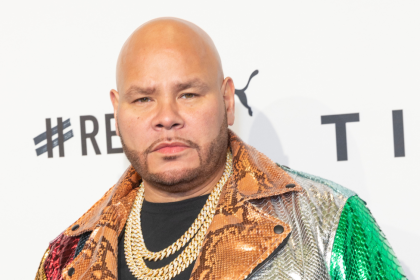A high-profile custody dispute has emerged between musician DDG and actress Halle Bailey regarding international travel permissions for their infant son. The legal conflict centers on Bailey’s planned work-related trip to Italy and raises complex questions about parental rights and child welfare considerations in celebrity relationships.
The case has attracted significant public attention due to both parties’ prominent entertainment industry profiles and the serious nature of the allegations being presented in court filings. Legal experts note that celebrity custody cases often involve unique challenges related to work schedules, international travel requirements, and public scrutiny that can complicate standard family court proceedings.
The dispute represents a significant escalation in what appears to be an increasingly contentious relationship between the former couple, with both parties seeking court intervention to resolve fundamental disagreements about parenting responsibilities and decision-making authority regarding their child’s welfare and daily care.
Emergency motion challenges international travel plans
DDG, whose legal name is Darryl Dwayne Granberry Jr., has filed an emergency court motion seeking to prevent Bailey from taking their infant son Halo to Italy for work-related purposes. The motion requests immediate judicial intervention based on concerns about the child’s safety and welfare during international travel.
The legal filing represents an attempt to obtain court-ordered restrictions on Bailey’s ability to make unilateral decisions about their child’s location and travel arrangements. Such emergency motions typically require demonstration of immediate risk or harm that justifies expedited court review rather than standard scheduling procedures.
Court documents indicate that the musician is seeking both temporary relief to prevent the Italy trip and longer-term custody modifications that would affect future parenting decisions. The dual approach suggests a comprehensive legal strategy aimed at establishing precedents for ongoing parental authority and decision-making responsibilities.
Legal practitioners familiar with family court procedures note that emergency custody motions face high evidentiary standards, requiring clear demonstration that immediate judicial intervention is necessary to protect child welfare or prevent irreparable harm to parental relationships.
Custody arrangement modifications sought
The legal filing includes requests for significant modifications to existing custody arrangements, including potential sole legal and physical custody transfer to DDG. These requests represent substantial changes to parental authority that would require extensive court review and evidence presentation.
Alternative proposals in the filing include requirements for third-party supervision during custodial exchanges between the parents, suggesting concerns about direct interactions and potential conflict situations. Supervised exchange arrangements are typically implemented when courts identify risks associated with direct parental contact.
The scope of requested custody modifications indicates that the dispute extends beyond the immediate travel question to broader concerns about ongoing parenting arrangements and decision-making authority. Comprehensive custody revisions typically require detailed court hearings and extensive evidence presentation from both parties.
Family law specialists emphasize that courts prioritize child welfare considerations above parental preferences when evaluating custody modification requests, requiring clear evidence that proposed changes serve the child’s best interests rather than simply addressing parental conflicts.
Bailey responds with counter-motion
Bailey has filed responsive legal documents seeking court permission for the Italy travel while denying the allegations presented in DDG’s emergency motion. Her legal response indicates disagreement with both the factual claims and the proposed custody modifications outlined in the opposing filing.
The actress’s counter-motion includes requests for judicial orders that would restrict DDG and his family members from making public statements about their legal proceedings and personal relationship. Such requests reflect concerns about publicity and social media commentary affecting legal proceedings and family privacy.
Bailey’s legal strategy appears focused on maintaining existing custody arrangements while securing necessary permissions for work-related travel that requires temporary relocation with their child. This approach suggests confidence in current arrangements and opposition to the significant changes proposed by DDG.
The responsive filing also addresses previous legal actions, including references to restraining order requests and allegations about monitored visitation arrangements. These elements indicate a complex legal history between the parties that extends beyond the current travel dispute.
Work obligations complicate custody considerations
Bailey’s Italy travel plans reportedly relate to professional film obligations, highlighting the unique challenges that entertainment industry careers create for custody arrangements. Celebrity parents often face scheduling conflicts between work requirements and parenting responsibilities that require judicial consideration.
Courts typically evaluate work-related travel requests based on factors including the duration of proposed travel, the child’s age and developmental needs, and the availability of alternative arrangements that could accommodate both parental access and professional obligations. The infant age of the child in this case creates additional considerations regarding extended separation from either parent.
Entertainment industry work often involves international locations and extended timeframes that differ significantly from traditional employment schedules, requiring specialized legal approaches to custody arrangements that account for industry-specific demands while protecting child welfare.
Legal precedents in celebrity custody cases suggest that courts often seek compromise solutions that accommodate legitimate work requirements while maintaining meaningful parental relationships and minimizing disruption to children’s routines and stability.
Public attention affects legal proceedings
The high-profile nature of both parties creates additional complexity for legal proceedings, as public attention and social media commentary can influence case dynamics and potentially affect judicial decision-making processes. Celebrity custody cases often require special procedures to manage publicity and protect family privacy.
Court filings reference concerns about public statements and social media posts related to the legal proceedings, indicating that publicity management has become a significant factor in the dispute resolution process. Judges frequently issue orders restricting public discussion of ongoing custody cases to protect all parties involved.
The entertainment industry profiles of both parents mean that their legal dispute receives extensive media coverage that can create additional pressure and complications for standard family court procedures. This attention often necessitates enhanced security measures and modified court procedures to accommodate public interest while maintaining judicial integrity.
Legal experts note that celebrity status can both complicate and expedite family court proceedings, as high-profile cases often receive priority scheduling while facing additional scrutiny and procedural requirements designed to manage public attention and protect participant safety.
Child welfare remains primary consideration
Family court proceedings prioritize child welfare above all other considerations, requiring evidence that proposed custody arrangements serve the best interests of the child rather than simply addressing parental conflicts or preferences. The infant age of the child creates additional factors for judicial consideration.
Courts evaluating custody disputes involving very young children typically consider factors including attachment relationships, feeding and care routines, medical needs, and developmental stability requirements. International travel with infants raises additional concerns about medical care access and emergency response capabilities.
The serious nature of allegations presented in court filings requires careful judicial evaluation to determine factual accuracy and relevance to child welfare considerations. Courts must distinguish between legitimate safety concerns and relationship conflicts that may not directly impact child welfare.
Legal practitioners emphasize that emergency custody modifications require clear evidence of immediate risk to child safety or welfare, with courts generally preferring to maintain existing arrangements unless compelling evidence demonstrates that changes are necessary for child protection.
Legal process timeline and expectations
Emergency custody motions typically receive expedited court review, though the timeline for resolution depends on court scheduling availability and the complexity of issues presented. Both parties can expect multiple court appearances and extensive documentation requirements as proceedings develop.
The comprehensive nature of the custody modifications requested suggests that resolution may require extended legal proceedings beyond the immediate travel question. Courts often address emergency relief separately from longer-term custody arrangements to ensure immediate child protection while allowing thorough evaluation of permanent modifications.
Family court procedures typically include opportunities for mediation and settlement discussions that could resolve disputes without extended litigation, though the serious nature of allegations in this case may complicate settlement negotiations. Professional counseling and parenting coordination services are often recommended in high-conflict custody cases.
Legal experts anticipate that the high-profile nature of this case may influence the pace and procedures of court proceedings, with additional attention to privacy protection and security measures that could affect standard family court timelines and processes.
















